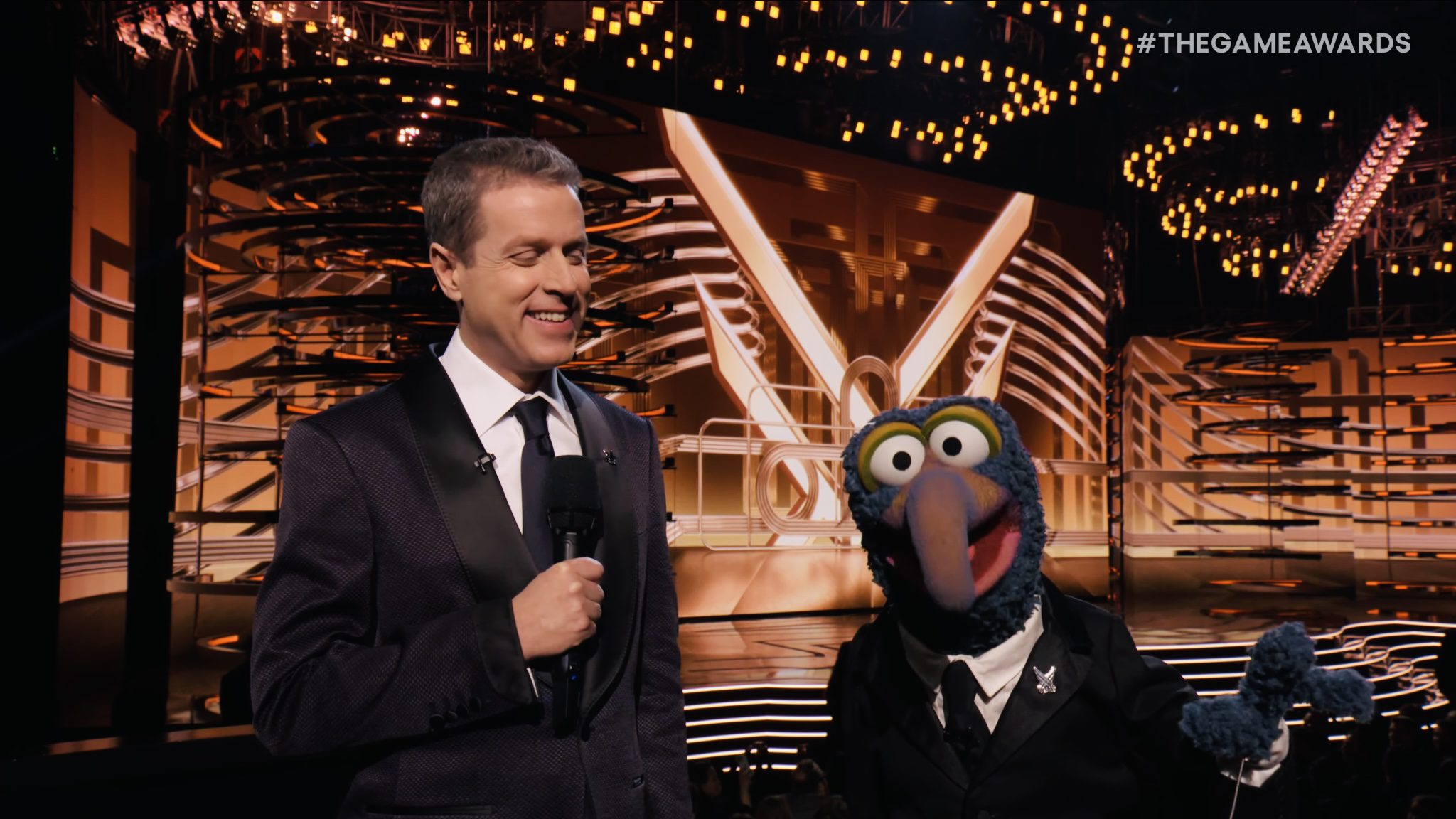On December 7th, I alongside millions of others gathered around the digital cavea to watch what many now consider to be one of (if not the) biggest annual event in the video game industry — The Game Awards. In the three and a half hour runtime, we got to see Geoff Keighley and Co. reveal to the world, for the first time, a plethora of exciting upcoming titles. From Arkane Lyon working on a third-person action/adventure under the Blade IP, Hideo Kojima working with Get Out director Jordan Peele on some obtuse, medium-defying horror game that supposedly isn’t a “game” at all (where have I heard that before?), to a Dragon Ball: Sparking Zero gameplay reveal that made my nine-year-old weeaboo heart leap out of my chest. Yet, for all these admittedly exciting announcements that for sure garnered a swell of memorable Twitch reactions, there was a persistent omission throughout the night: speeches.
“We bring together a diverse group of game developers, game players, and notable names from popular culture to celebrate and advance gaming’s position as the most immersive, challenging and inspiring form of entertainment.” This is what’s written on The Game Awards’ “About” section. It’s a fine enough mission statement, but there’s a word in there that I would like to focus on: “celebrate.” In a year that has brought us monumental titles from independent studios like Baldur’s Gate 3, brilliant indies like Cocoon and Venba, and games that push the boundaries of video game storytelling like Alan Wake II, it seems The Game Awards are less interested in truly “celebrating” the developers that make these breakthrough experiences, and more interested in “wowing” audiences with never-before-seen games whose release dates are set for when America’s 47th president takes office. And, of course, Fortnite advertisements.
“Best Independent Game,” “Best RPG,” “Best Score and Music,” and “Innovation In Accessibility” were but a few of the categories that saw either co-host Sydnee Goodman or Keighley himself announce directly to the audience instead of giving the stage to the actual winners, doing so in a rushed manner that made it feel as if neither could wait to get to the next grand unveiling. It’s something that the show has done in the past, with different categories getting axed from stage-time each year (I remember being particularly miffed the year “Best Performance” was removed), but it felt worse this time around. Especially when considering that 2023 was a record breaking year that saw thousands of jobs being lost throughout the industry due to detestable business practices, celebrating the developers that continue to strive to make great art feels all the more imperative; if not outright necessary. Instead, we got an almost fatiguing number of “world premiers,” and an entire segment with Gonzo and Camilla the Chicken.
Listen, I understand that putting on an awards show of this caliber and scale costs money. As such, the barrage of advertisements (which thankfully have toned down in recent years, at least in terms of how they’re presented) are a necessary evil. Back-to-back-to-back speeches from award winners can also be fatiguing for viewers at home, and so breaking up the pace with trailers of unannounced titles is a great way to get audiences excited and makes for continued conversation from journalists and fans alike in the days and weeks following. Not to mention the impeccable live performances that the show delivers each year—especially those accompanied by the always phenomenal Game Awards Orchestra—are positive additions that add greatly to the overall production. I commend Geoff Keighley for the show that he has created, and for continuing to fine-tune its kinks each year. But kinks it most certainly still has, and this year’s absence of speeches with rushed categories is the biggest one that needs to be ironed out for the years following.
I’d be curious to know if last year’s unfortunate debacle that saw a stage crasher sully FromSoftware’s moment during their “Game of the Year” speech for Elden Ring played a part in both reducing the number of speeches, as well as comically shortening the allowed time for every winner’s stage-time. Though I’m sure this latter point could also be in response to Christopher Judge’s iconic eight minute speech from last year. No matter the reasoning behind the decision, it still doesn’t justify taking away what may very well be a career moment for many developers. Keighley stated on a stream that they would be tightening up security during the event, which thankfully worked as no uninvited guests made an appearance during the show. So with that (hopefully) taken care of, there’s little reason to not include more speeches across more categories. If the concern is runtime, then cutting three or four of those “world premiers” would more than recoup those extra minutes that would be taken by said speeches. If you’re worried about speech fatigue, then consider adding an extra performance by your wonderful orchestra—believe me, none of us would complain at seeing more of “Flute Guy.”
The Game Awards is a show that I look forward to each year, and will continue to watch every year henceforth. It’s wonderful to watch alongside my favorite podcasters, texting with my friends across the globe as we all come together to celebrate the year in gaming, as well as all the exciting things that are to come. This show has become a staple for our industry, and though it’s far from perfect, it’s gotten better with each passing year with its best hopefully yet to come. What Keighley and Co. need to realize is, however, is that the show is at its best not when it’s mired in unnecessary unveilings or egregious advertisements, but when it celebrates the tremendous games and developers that make its existence possible.
